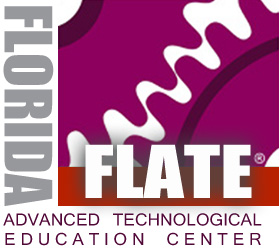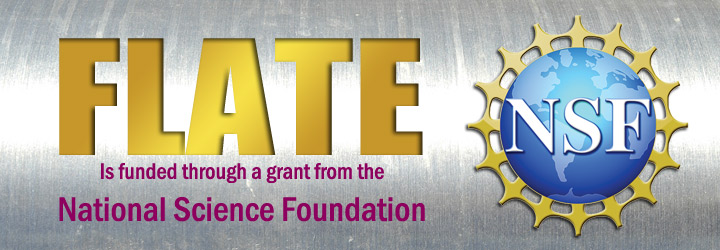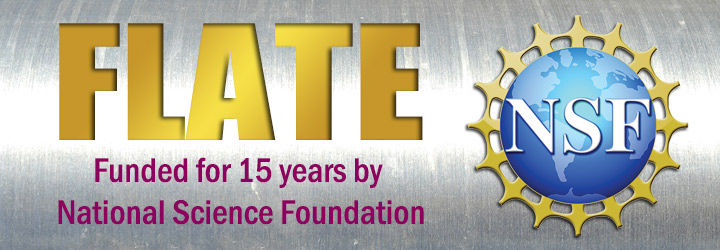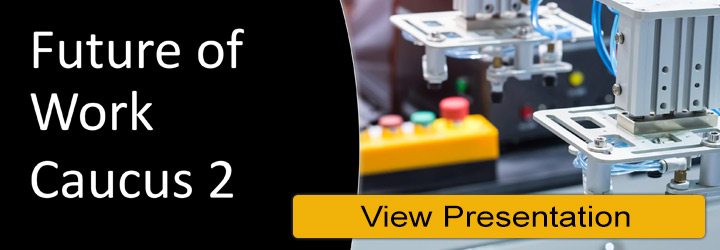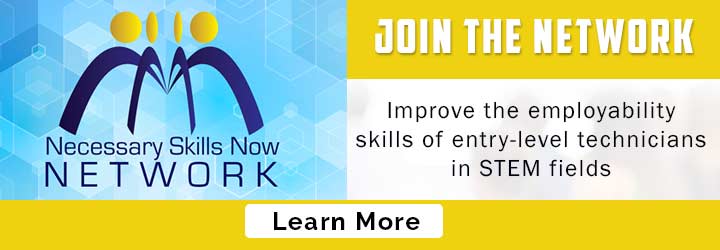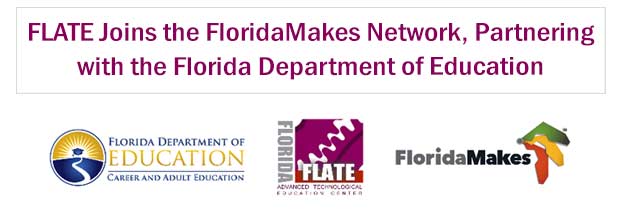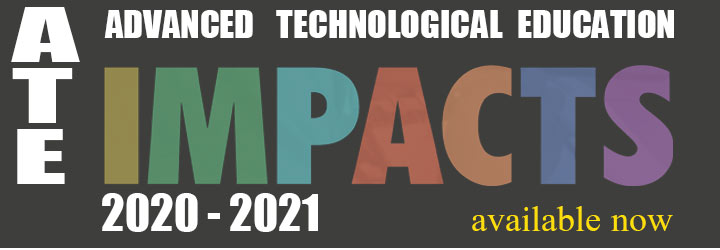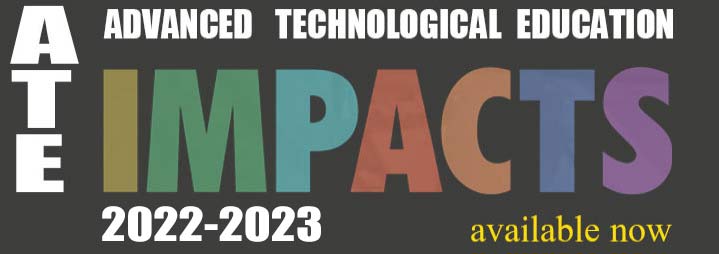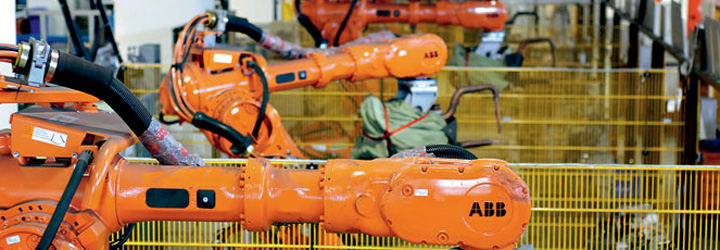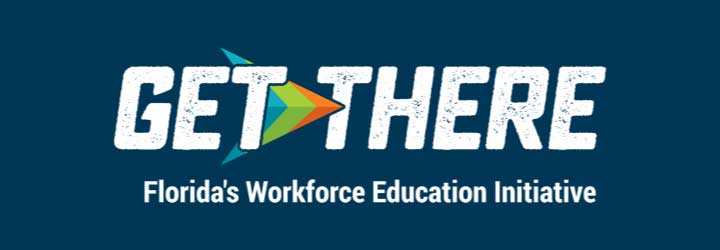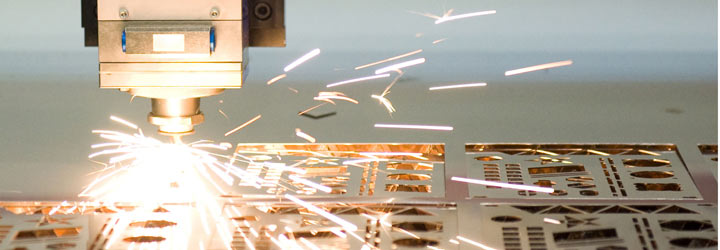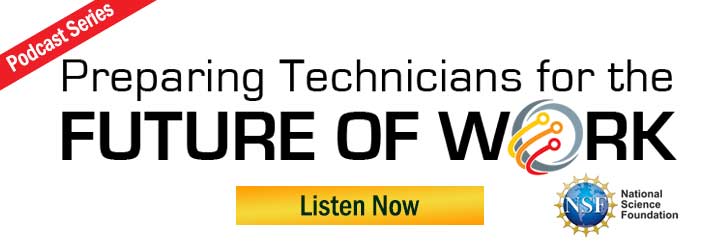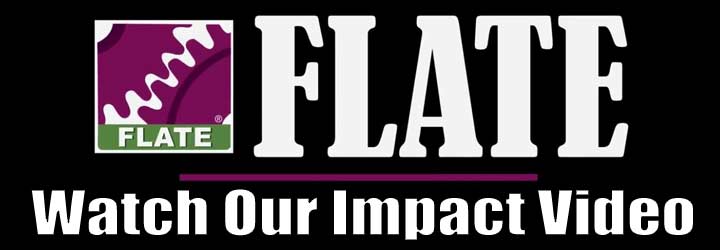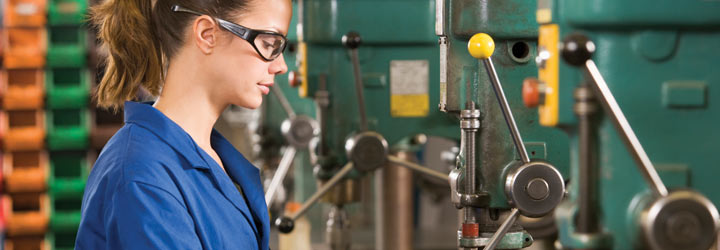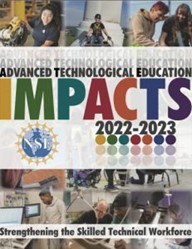FLATE Focus (October 2017)
From the Executive Directors Desk:Daytona State College’s Statewide Articulation for ASET to to BSET
FLATE’s mission includes providing meaningful career and educational pathways for the advanced manufacturing industry sectors. This includes the entire spectrum from introducing young children to “making” to post baccalaureate STEM degrees, with our sweet spot the middle of the spectrum where we find high school students, post-secondary students in 2-year technical programs and/or technical institutions. As educators, we know the value of education for both personal and professional growth and always encourage students to consider continuing their education to support that growth. Obviously, it becomes easier to do this when we have smooth pathways that optimizes both their education and their experiences.
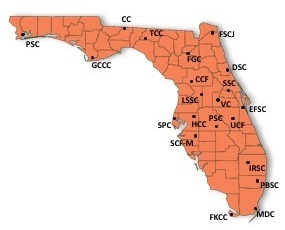 To this end, we developed credentialed-based articulations to the A.S. Engineering Technology (A.S.E.T.) to give full credit for a number of credentials thereby accelerating the time completion. This pathway model has been adopted in many disciplines and at many college across the nation. Now in 2017 I am excited to share the work done at Daytona State College (DSC) to establish a statewide articulation for all A.S.E.T. graduate in any of the 10 specializations at over 20 state and community colleges to the B.S. Engineering Technology (B.S.E.T.) that will go into effect early in 2018. This sounds like a “no-brainer” because there are many smooth “2+2” Associate of Arts (A.A.) to Bachelors of Arts or Science (B.A. or B.S.) degree. However, technical degrees for which the main focus is prepare students to enter specific technical jobs upon completion not necessarily to continue to a bachelor’s degree. Additionally, there are critical criteria that must be met for baccalaureate degrees that are set by institutional accrediting agencies, state governing boards, and discipline-specific accrediting organizations (in the case for Engineering and Engineering Technology, that organization is ABET (https://www.abet.org/). These degree attributes are not inherent with in our community of 20+ state and community colleges offering various combinations of A.S.E.T. specializations using over one hundred academic courses. Defining an agreement that would accommodate all variations truly represents a work of both art and engineering.
To this end, we developed credentialed-based articulations to the A.S. Engineering Technology (A.S.E.T.) to give full credit for a number of credentials thereby accelerating the time completion. This pathway model has been adopted in many disciplines and at many college across the nation. Now in 2017 I am excited to share the work done at Daytona State College (DSC) to establish a statewide articulation for all A.S.E.T. graduate in any of the 10 specializations at over 20 state and community colleges to the B.S. Engineering Technology (B.S.E.T.) that will go into effect early in 2018. This sounds like a “no-brainer” because there are many smooth “2+2” Associate of Arts (A.A.) to Bachelors of Arts or Science (B.A. or B.S.) degree. However, technical degrees for which the main focus is prepare students to enter specific technical jobs upon completion not necessarily to continue to a bachelor’s degree. Additionally, there are critical criteria that must be met for baccalaureate degrees that are set by institutional accrediting agencies, state governing boards, and discipline-specific accrediting organizations (in the case for Engineering and Engineering Technology, that organization is ABET (https://www.abet.org/). These degree attributes are not inherent with in our community of 20+ state and community colleges offering various combinations of A.S.E.T. specializations using over one hundred academic courses. Defining an agreement that would accommodate all variations truly represents a work of both art and engineering.
The A.S.E.T. is a 60-credit hour degree with 15 hours of general education and 18 hours of introductory level technical courses and 27 hours of more advanced technical course. The B.S.E.T. will require a total of 128 hours, including all 60 earned in the A.S.E.T. The B.S requires 11 more hours of general education courses (for a total of 36 hours) and 48 hours of upper level technical courses. The remaining hours can come from either lower or upper level technical courses and generally include some pre-requisite courses for the required B. S.E.T. math and physics courses. Faculty in the A.S.E.T. programs can help students who are considering the B.S.E.T. to take some of those pre-requisite courses as electives during their associate’s degree. Naturally, the student can always be told to just take more courses, but this is not our approach. A seamless transfer for each student from A.S. to B.S. is the goal.
 An additional challenge, and perhaps magic for (for those of us who live in education domain is the fact that the B.S.E.T. at DSC can be taken remotely with online and hybrid courses. The hybrid courses have four options for completing the hands-on lab exercises: 1) Complete the exercises at Daytona State in the college labs; 2) Purchase a lab kit for the course sold through the Daytona State bookstore; 3) arrange to do the lab portions at the local A.S.E.T. degree-offering state or community colleges; or 4) arrange to complete the lab activities at a workplace with a designated proctor. This generates many degrees of freedom for students but all of these options support efficient pathways to the B.S.E.T. degree.
An additional challenge, and perhaps magic for (for those of us who live in education domain is the fact that the B.S.E.T. at DSC can be taken remotely with online and hybrid courses. The hybrid courses have four options for completing the hands-on lab exercises: 1) Complete the exercises at Daytona State in the college labs; 2) Purchase a lab kit for the course sold through the Daytona State bookstore; 3) arrange to do the lab portions at the local A.S.E.T. degree-offering state or community colleges; or 4) arrange to complete the lab activities at a workplace with a designated proctor. This generates many degrees of freedom for students but all of these options support efficient pathways to the B.S.E.T. degree.
Although several A.S.E.T. programs in Florida already have defined specific articulation agreements with the B.S.E.T., the new statewide agreement will allow all students who have earned their A.S.E.T. degree in Florida to continue their ET education seamlessly at DSC. The B.S.E.T. is ABET accredited, and completers are eligible to get their Professional Engineer (PE) License once the candidate meets traditional and additional criteria of having a PE sponsor and a number of years work experience in the field under a licensed, practicing engineer.
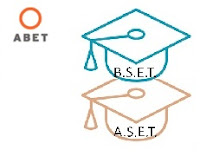 Interested in the B.S.E.T. degree, please contact Dr. Ron Eaglin at Daytona State College (eaglinr@daytonastate.edu). If you want to learn more about the A.S.E.T., contact Dr. Marilyn Barger, Executive Director FLATE (mbarger@hccfl.edu) or visit our ET Degree colleges webpage on www.madeinflorida.org
Interested in the B.S.E.T. degree, please contact Dr. Ron Eaglin at Daytona State College (eaglinr@daytonastate.edu). If you want to learn more about the A.S.E.T., contact Dr. Marilyn Barger, Executive Director FLATE (mbarger@hccfl.edu) or visit our ET Degree colleges webpage on www.madeinflorida.org
